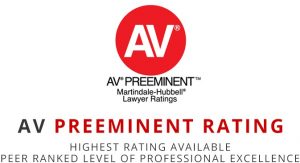Lawyers should avoid complicity in clients’ questionable practices
Commentary by Ronald G. Neiwirth
Daily Business Review
March 16, 2012 In September 2011, US Bankruptcy Judge Michael G. Williamson, in the Middle District of Florida, entered judgment in an action entitled Martinez v. Hutton (Case No. 8.08-MP-00002-MGW), holding a law firm liable as the initial transferee, for the return of fraudulently transferred funds which had passed through the firm’s trust account. An attorney from the law firm Steven D. Hutton, PA, represented Billy Jason Harwell, who, ultimately filed for bankruptcy in two different matters. The first concerned a shareholder dispute. It ended favorably for Harwell, who entered into a settlement agreement on Aug. 11, 2005, under which he was to receive $100,000 in cash within 20 days, $400,000 within 30 days and a promissory note for $46,837. The second matter for which Harwell had retained Hutton was the defense of collection of a judgment of approximately $1.4 million entered against Harwell in Colorado in July 2005. Harwell answered post-judgment interrogatories from the plaintiff but did not disclose the settlement nor that he would shortly have the funds. The first $100,000 payment was timely made on Sept. 1, 2005, to Hutton’s trust account. The same day, at Harwell’s direction, Hutton disbursed the money to Harwell and to third parties so that the money would not be available for seizure or garnishment by the plaintiff. On Sept. 6, 2005, also at Harwell’s request, Hutton write a letter to counsel to the counterpart directing it to make the promissory note payable to Harwell’s wife. On Sept. 9, 2005, the second installment of $400,000 was sent to the Hutton trust account. The same day at Harwell’s direction, Hutton distributed the $400,000 in the form of 17 checks which were variously payable to Harwell, Harwell’s wife, his father and several other third parties. On September 19, 2005, before all 17 checks had cleared – Hutton was served with a writ of garnishment. Hutton successfully quashed the write and immediately obtained a number of cashier’s checks payable to Harwell, Harwell’s relatives and third parties as designated by Harwell, in the collective amount of $125,000, depleting the remainder of the trust fund. Harwell’s bankruptcy trustee sued Hutton and the individual attorney, alleging that they were the initial transferees of voidable fraudulent transfers pursuant to 11 USC 548, and thus strictly liable to repay the avoided transfer. The defense moved for summary judgment; the bankruptcy court dismissed the complaint, holding that since the attorney and Hutton owned no interest in the funds, but simply held them at the order of the client, that they were not the initial transferee, but merely a “conduit.” The bankruptcy trustee appealed and the district court affirmed the dismissal. The trustee again appealed to the 11th US Circuit Court of Appeals, which reversed. The 11th Circuit held that, which an initial transferee may equitably escape liability by demonstrating that it had no ownership interest or control over the funds, and thus it was a mere conduit, the conduit test has another element to it – not the attorney, individually. Although counsel certainly viewed his actions that he took to represent his client as appropriate, he did not need to make his trust account available to Harwell so that Harwell could effect transfers intended to hinder, delay, or defraud a creditor. He could have directed the settlement counterparty to make payment directly to Harwell. The 11th Circuit explained that a law firm cannot turn a blind eye to the surrounding circumstances, when a client asks the firm to deposit money in its trust account, and then distribute it in an unusual fashion with an eye towards avoiding judgment creditors. This is especially so where the firm is already on notice that the client’s judgment creditor is seeking collection. Thousands of transactions for clients are handled through trust accounts in the ordinary course of business every day and would not present such issues. Given the stand taken by the 11th Circuit, firms should be cautious in allowing any deviation from normal payment practices concerning clients in imminent jeopardy, such as Harwell. The Martinez case explains that lawyers who facilitate their client’s efforts to defraud creditors cross the line from counsel to participant. A careful lawyer will avoid complicity in his client’s questionable practices and limit himself to zealous representation within the bounds of the law. Ronald G. Nelwirth is a partner in the Miami office of Boyd & Jenerette. He handles bankruptcy proceedings and a full range of insolvency matters locally and throughout the United States on behalf of foreign liquidators.


